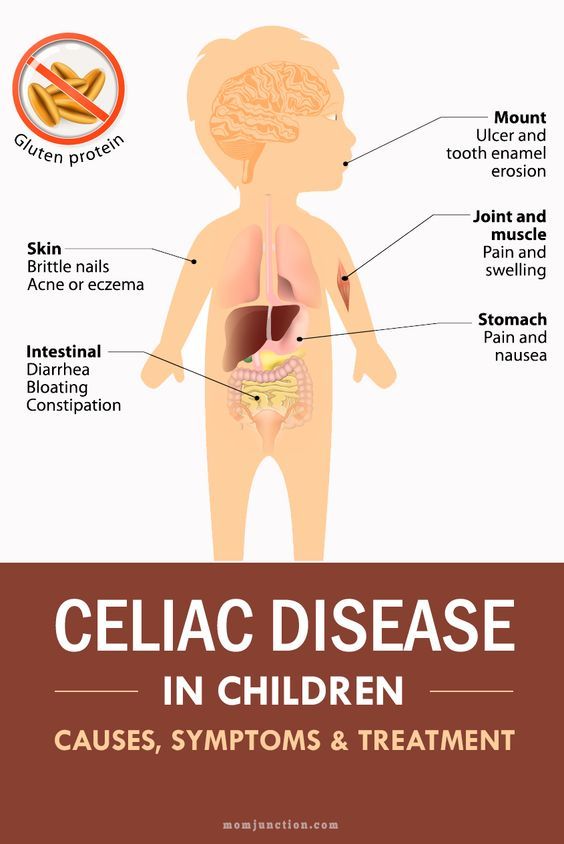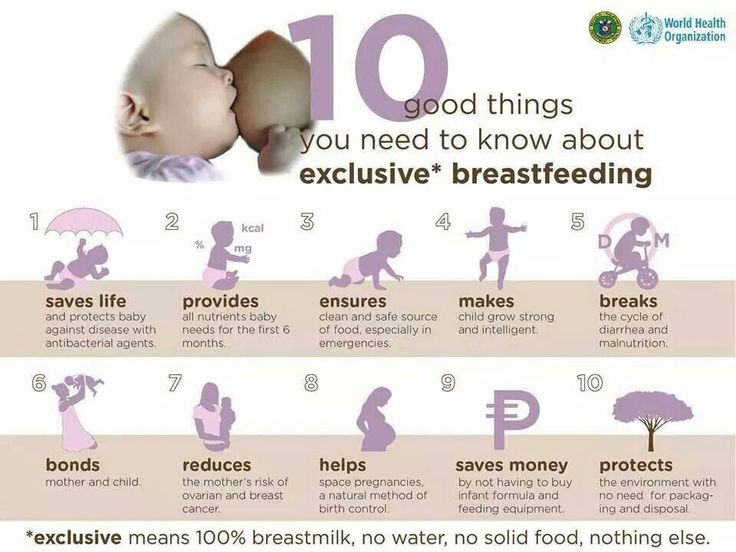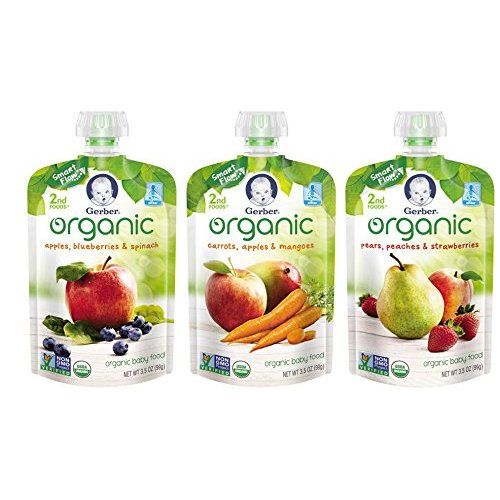Foods that can cause eczema in babies
7 Foods to Avoid in Babies and Toddlers with Eczema
Also known as atopic dermatitis, eczema is a common condition characterized by red, itchy, and inflamed skin.
Although eczema can affect anyone, it’s especially common among children. In fact, about 60% of cases develop within the first year of life (1).
Many factors can worsen eczema flare-ups, including foods.
Research shows that certain foods may trigger eczema in 20–30% of cases of moderate to severe eczema. Additionally, foods are more likely to worsen symptoms in children and infants under age 5 (2).
While foods do not directly cause eczema, making dietary changes could help reduce symptoms, especially for those who have a sensitivity or allergy to specific foods (3).
In children with a confirmed food allergy, eliminating trigger foods from the diet may significantly improve symptoms of eczema within just 1–2 months (4).
However, keep in mind that it’s not necessary to avoid all the foods listed below to help manage your child’s eczema.
SummaryCertain foods may worsen symptoms of eczema, especially in children and infants. However, it depends on the child’s particular allergies or sensitivities, so speak with a healthcare professional to determine which foods might be best to eliminate.
Preventing food allergies
Introducing common allergen foods to an infant early in life may actually help prevent them from developing food allergies, including to eggs and peanuts (5).
If you’re considering eliminating certain foods from your child’s diet or you’re concerned about your child developing food allergies, speak with a healthcare professional. They can help you develop a diet plan based on your child’s needs.
Research has shown that eliminating one or more of these foods from the diet may significantly improve symptoms of eczema in some children.
1. Dairy
Not only is a cow’s-milk allergy the most common food allergy in young children, but dairy products like milk, yogurt, and cheese are also common triggers for eczema (6).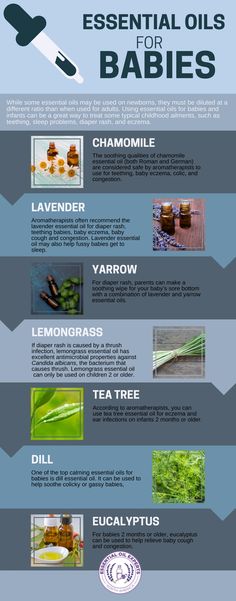
One study in 132 children with food-triggered eczema found that 39% of children developed an immediate reaction after consuming cow’s milk (2).
A 2019 review reported that infants with eczema were six times more likely to have an allergy to cow’s milk, eggs, or peanuts at 12 months of age compared with infants without eczema (7).
Fortunately, there are several simple plant-based milks available as an alternative to cow’s milk, including soy milk, almond milk, and cashew milk.
However, be sure to check the ingredients lists carefully, as some of these products are high in calories and added sugar.
2. Fish and shellfish
The term “shellfish” refers to any aquatic animal that has a shell-like exterior, including crabs, lobsters, oysters, mussels, and shrimp. Meanwhile, most types of fish, including salmon, trout, tuna, and tilapia, have fins and scales.
Although both fish and shellfish are highly nutritious and can be great sources of protein and omega-3 fatty acids, they can also worsen symptoms of eczema for many children.
This is because fish and shellfish allergies are common and can cause a wide range of side effects, including hives, itching, and eczema (8, 9).
While some children may be sensitive to finned fish or shellfish, others may experience reactions only to certain types, such as crustaceans (like shrimp and crab) or mollusks (like oysters and clams) (8).
A pediatrician or registered dietitian can help determine which specific types of seafood may trigger symptoms for your baby or toddler.
3. Soy products
For those with a soy allergy, consuming soy products like soy milk, tofu, or edamame can cause an immune response, which could trigger skin reactions such as eczema (10).
Compared with allergies to other major food allergens, soy allergies are not nearly as common (11, 12).
For example, one 2013 study in 175 people with eczema found that around 30% had an immune reaction to soy. However, only about 3% of people experienced symptoms, such as hives and itching, after consuming soy (13).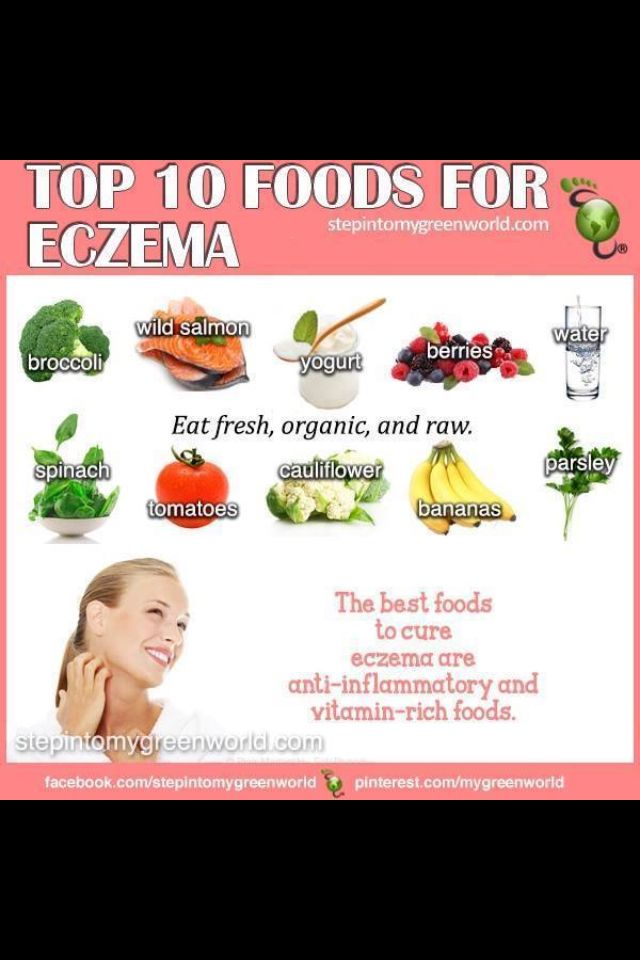
If your baby or toddler has a sensitivity to soy products, keep in mind that many processed foods contain soy-based ingredients, all of which could worsen symptoms of eczema. Examples include (14):
- soy sauce
- tamari
- soy protein
- textured vegetable protein
4. Eggs
Share on PinterestElena Botta/Getty Images
Some babies or toddlers may have an allergy to the proteins found in egg whites or yolks, which could trigger symptoms of eczema (15).
Egg allergy is one of the most common food allergies, affecting an estimated 1.3% of children under 5 in the United States (16).
Furthermore, one study reported that infants with eczema are nearly 6 times as likely to develop an egg allergy by 12 months of age compared with those without eczema (7).
However, most egg allergies in children resolve by around age 5 (17).
Additionally, some babies and toddlers who are sensitive to eggs may be able to tolerate them in some forms, such as baked eggs (16).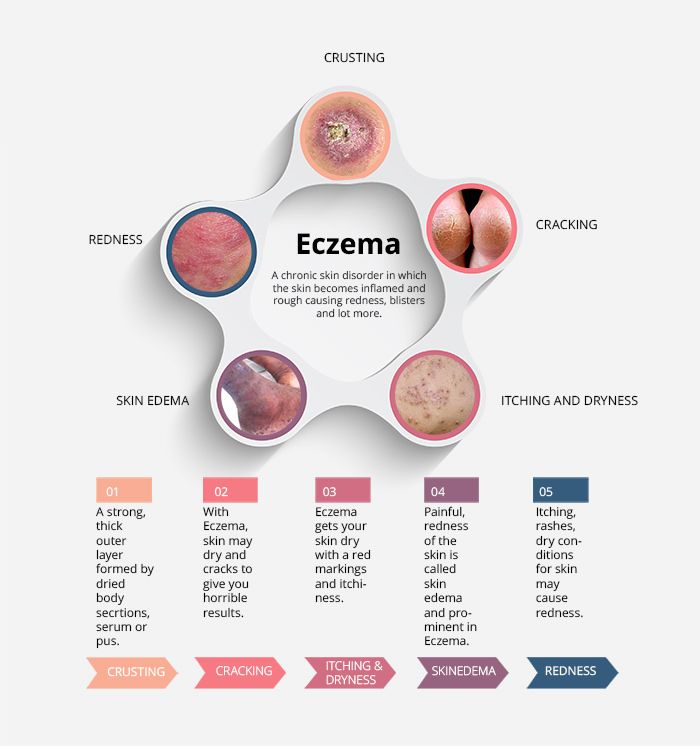
5. Tree nuts
Tree nuts could worsen eczema for many young children with a tree nut allergy. Examples of tree nuts include:
- almonds
- cashews
- walnuts
- pecans
Tree nut allergies are very common and may affect up to 4.9% of children and adults (18).
Unfortunately, tree nut allergies can be very serious, and some research suggests that more severe reactions to tree nuts are often associated with severe cases of eczema, asthma, and seasonal allergies (19).
In addition to avoiding tree nuts specifically, your child may need to avoid foods that contain tree nuts, including pesto, nut butters, coconut products, and certain types of cereals, cookies, crackers, or candies.
6. Wheat or gluten
Wheat is a type of cereal grain and a staple ingredient in many foods, such as bread, pasta, and baked goods.
Gluten is a specific protein found in wheat, barley, and rye that gives dough its structure and elasticity.
For those with a wheat allergy, consuming products that contain wheat may worsen eczema and could also cause other symptoms, including hives, asthma, and digestive issues (20, 21).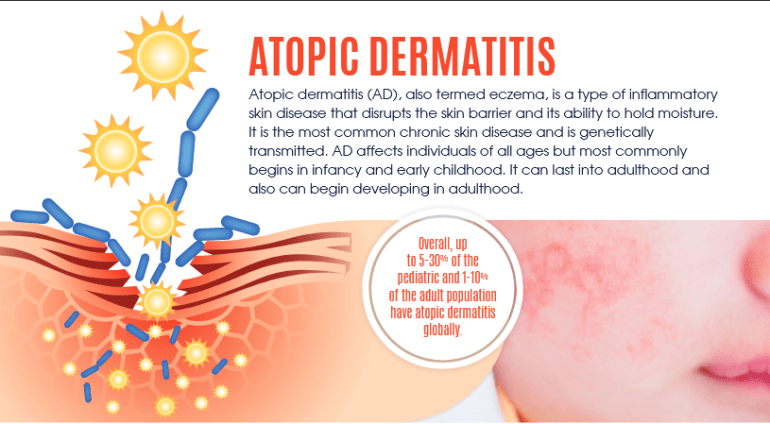
Eczema and skin rashes can also be caused by a sensitivity to gluten, as well as by celiac disease, an autoimmune condition that triggers an immune reaction when gluten-containing foods are consumed (22, 23, 24).
While there is no test available to diagnose non-celiac gluten sensitivity, your child’s pediatrician can use a skin or blood test to help determine if your child has celiac disease or an allergy to wheat.
7. Peanuts
Peanuts are a common allergen and are associated with several skin reactions, including rashes, hives, itching, and eczema (25).
Peanut allergies are especially common among babies and toddlers, as most peanut allergies appear within the first 2 years of life (25).
Additionally, some research shows that peanut allergies are more common among infants with moderate to severe eczema (26).
If peanuts cause flare-ups of eczema for your baby or toddler, try swapping other ingredients into your favorite recipes instead, such as seeds or seed butters.
SummarySome of the most common foods that cause allergies in infants and toddlers are dairy, fish, shellfish, soy products, wheat, peanuts, tree nuts, and eggs.
Several foods can be beneficial for eczema and may help reduce symptoms such as itching and inflammation.
For example, fruits and vegetables are rich in antioxidants, which are compounds that can protect against oxidative stress, cell damage, and inflammation (27).
Although studies in humans are still limited, some research suggests that reducing oxidative stress could play a role in managing eczema (28).
Increasing your intake of probiotics through fermented foods or supplements may also be helpful.
According to one review of 13 studies, certain strains of probiotics were effective at reducing eczema severity in children. These strains included Lactobacillus fermentum and Lactobacillus salivarius (29).
However, more research is needed because other studies have found that probiotics do not have a significant effect on symptom severity or quality of life for those with eczema (30).
SummaryIncluding more foods rich in antioxidants and probiotics in your child’s diet could be beneficial for eczema, but more research is needed.
For many babies and toddlers, diet can play a key role in managing symptoms of eczema.
While certain foods can make eczema symptoms worse, others may decrease inflammation and oxidative stress, which could reduce symptoms.
However, it’s best to talk with a pediatrician or dietitian before making any changes to your child’s diet, especially because eliminating certain foods from their diet could make it harder for them to meet their nutritional needs.
Additionally, keep in mind that many other factors can contribute to eczema and some children may also need other types of treatment to help relieve symptoms.
Just one thing
Try this today: Consider experimenting with some at-home remedies for your child’s eczema. Check out this article for a few ideas to help provide relief for your baby or toddler.
What’s the Connection Between Food and Eczema Flares in Kids?
Written by R. Morgan Griffin
Could diet be to blame for your child’s eczema?
It's possible.
Up to 1 in 3 kids with eczema has a food allergy that could make symptoms worse. If you remove some choices, it could make a big difference.
But since finding food triggers is tricky -- and eczema can have lots of other causes -- don't jump to conclusions. Work closely with an allergist.
Which Foods May Trigger Eczema?
When you have a food allergy, your body reacts to a harmless treat as if it's a dangerous germ and attacks. Symptoms -- like swelling -- are side effects of your body's defenses.
Eczema doesn't seem to be an allergic condition, but reactions from food can make it worse in some kids. It’s more likely in babies and young children.
Some foods are more likely to bring symptoms. The common offenders are:
- Milk
- Eggs
- Peanuts
- Tree nuts
- Wheat
- Fish
- Shellfish
- Soy
While trigger foods can make eczema worse, experts don't think they’re really the original cause.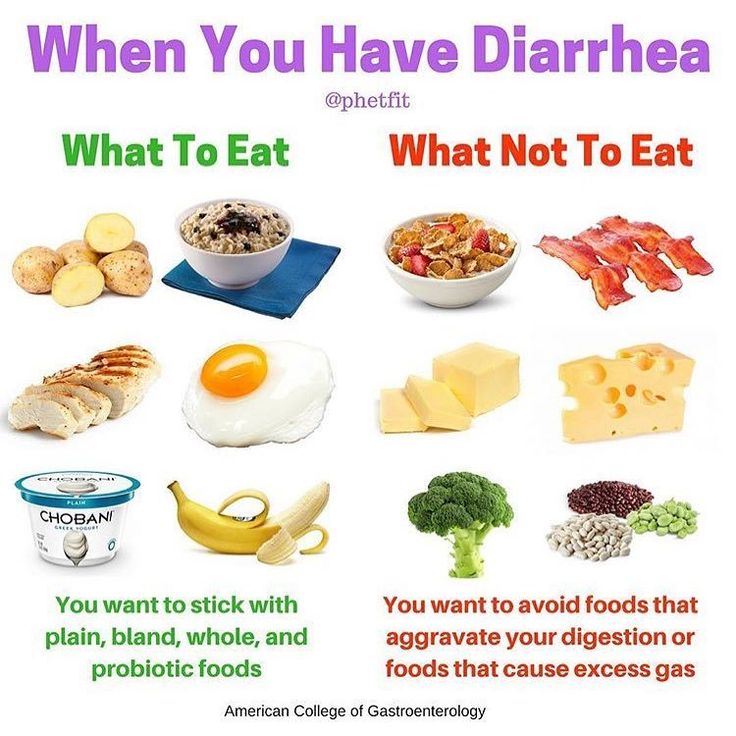 Instead, it seems to result from "leakiness" in the outer layer of skin that lets in irritants, germs, and allergens.
Instead, it seems to result from "leakiness" in the outer layer of skin that lets in irritants, germs, and allergens.
How to Find a Food Trigger
Some are obvious. If your child eats lobster for the first time and breaks out in hives 15 minutes later, it’s probably not hard to figure out.
But with eczema, it's often tougher. Symptoms may not show up for days after you eat something. If you do find a trigger food and get rid of it, that may help. Still, it may not make the eczema go away. Remember, 2 out of 3 kids with eczema don't have a food allergy at all.
That's why working with a doctor is so important. They can guide you toward the real cause through tests like:
Elimination diets. If your doctor thinks a food may be harmful, they may ask you not to give it to your kid for 10 to 14 days. Watch to see if it makes a difference.
Food challenges. After you've taken a food out of your child's diet, your pediatrician might want you to add a small amount back in to see if it causes symptoms.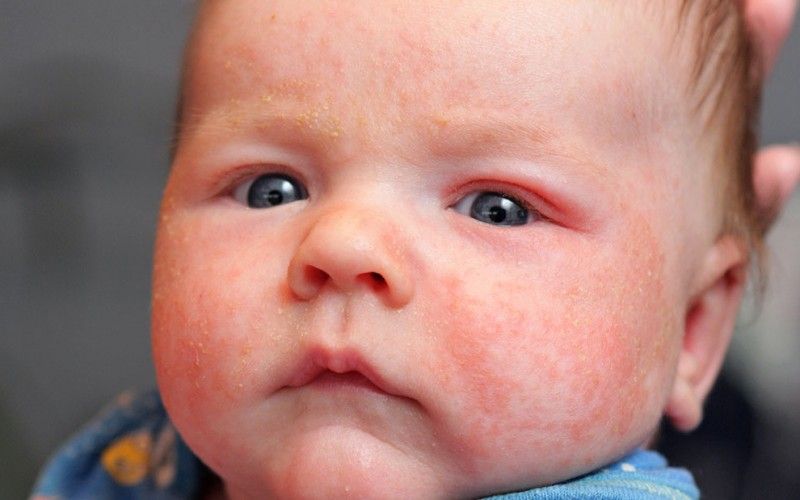 They may want to do this in the office, just in case your child has a reaction.
They may want to do this in the office, just in case your child has a reaction.
Skin testing. A doctor can take an extract of the food and use it to scratch the skin lightly. If the area swells up, that could be an allergic reaction. However, it's not always accurate.
Blood tests. RAST -- a radioallergosorbent test -- can check for special cells in the blood that signal specific food allergies. Again, it's not always accurate. Other lab tests can check for cells that trigger swelling.
Tracking down a food trigger can take patience and detective work.
Be methodical. Only eliminate one food at a time. If you ban dairy and gluten at the same time and symptoms get better, you won’t know which one made the difference. Use a food diary to keep track of what you get rid of, and the changes that brings.
Move slowly. A positive skin test isn't reason enough to cut out a food. Lots of kids test positive for foods that don't really cause symptoms.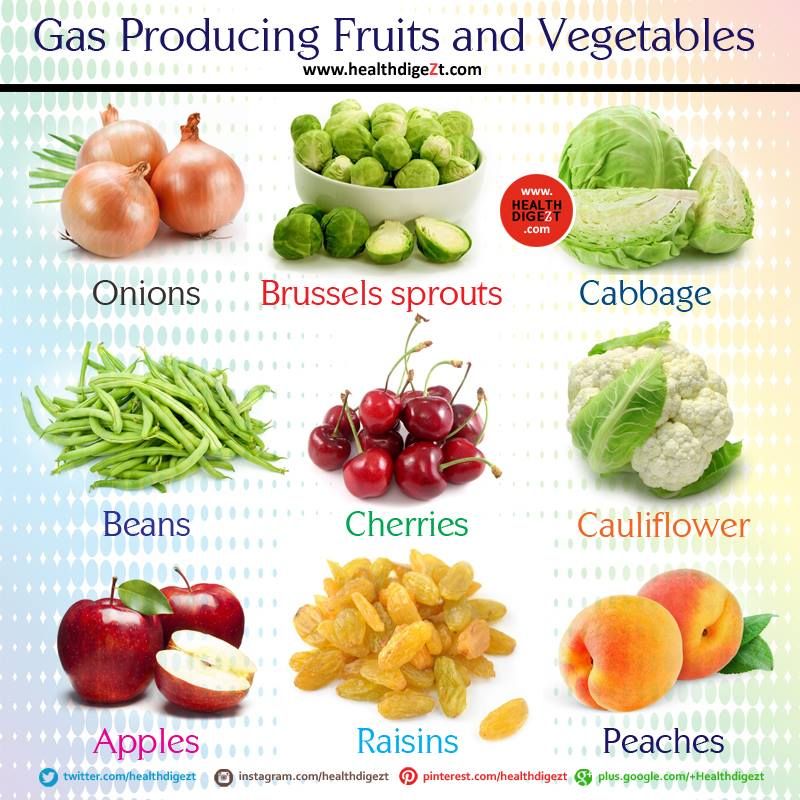 Plus, if you get rid of too many foods, you could cut out nutrients your child needs to grow and develop. So for their sake and yours, be sure before you take a food from your child's diet permanently. Work with your doctor.
Plus, if you get rid of too many foods, you could cut out nutrients your child needs to grow and develop. So for their sake and yours, be sure before you take a food from your child's diet permanently. Work with your doctor.
Keep using other treatments. Even if you find a trigger food, getting rid of it may not make the rash disappear. Stick with the other things your doctor recommends -- like skin ointments, lotions, and medicines. Continue to steer clear other allergens like dust mites, pollen, or pet dander, too.
What foods cause eczema and atopic dermatitis - doctor
https://crimea.ria.ru/20210221/Kakie-produkty-vyzyvayut-ekzemu-i-atopicheskiy-dermatit--vrach-1119291887.html
What foods cause eczema and atopic dermatitis - doctor
What foods cause eczema and atopic dermatitis - doctor - RIA Novosti Krym, 21.02.2021
. If the allergen is not identified and excluded, eczema and... RIA Novosti Crimea, 02/21/2021
2021-02-21T19:37
2021-02-21T19:37
2021-02-21T18:35
/html/head/meta[@name='og:title']/@content
3 /html/head/meta[@name='og:description']/@content
.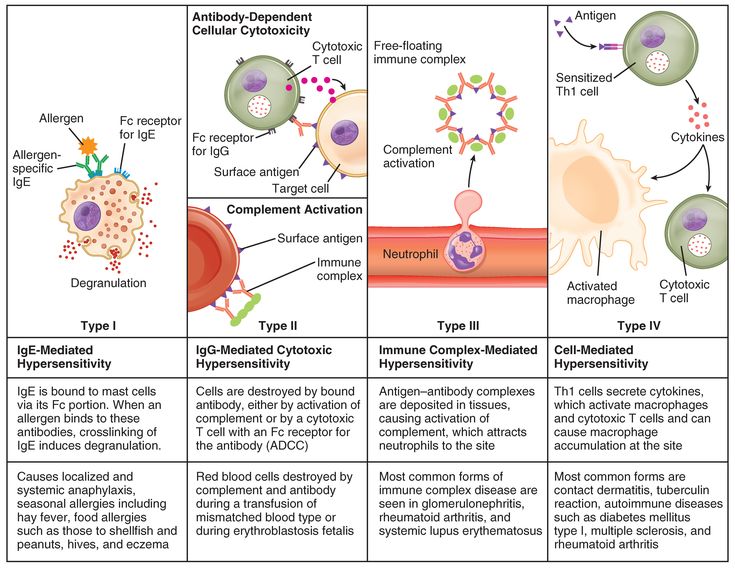 jpg
jpg
RIA Novosti Crimea
1
5
4.7
96
7 495 645-6601
FSUE MIA "Russia Today"
https: //xn---C1acbl2abdlkab1og.xn--p1ai/Awards/
200003
RIA Novosti
1
5
9000 4.7 9000 9000 9000News. [email protected]
7 495 645-6601
Rossiya Segodnya
https://xn--c1acbl2abdlkab1og.xn--p1ai/awards/
//crimea.ria.ru/docs/about/copyright.html
https://xn--c1acbl2abdlkab1og.xn--p1ai/
RIA Novosti Crimea
1
5
4.7
96
7 495 645-6601
Federal State Unitary Enterprise “Russia Today”
https: // XN------------------------------- C1ACBL2ABDLKAB1OG.xn--p1ai/ Awards/
RIA Novosti Crimea
1
5
4.7
9000 9000
495 645-6601
FSUI MIA today "today"
https://xn--c1acbl2abdlkab1og.xn--p1ai/awards/
RIA Novosti Crimea
1
5
4.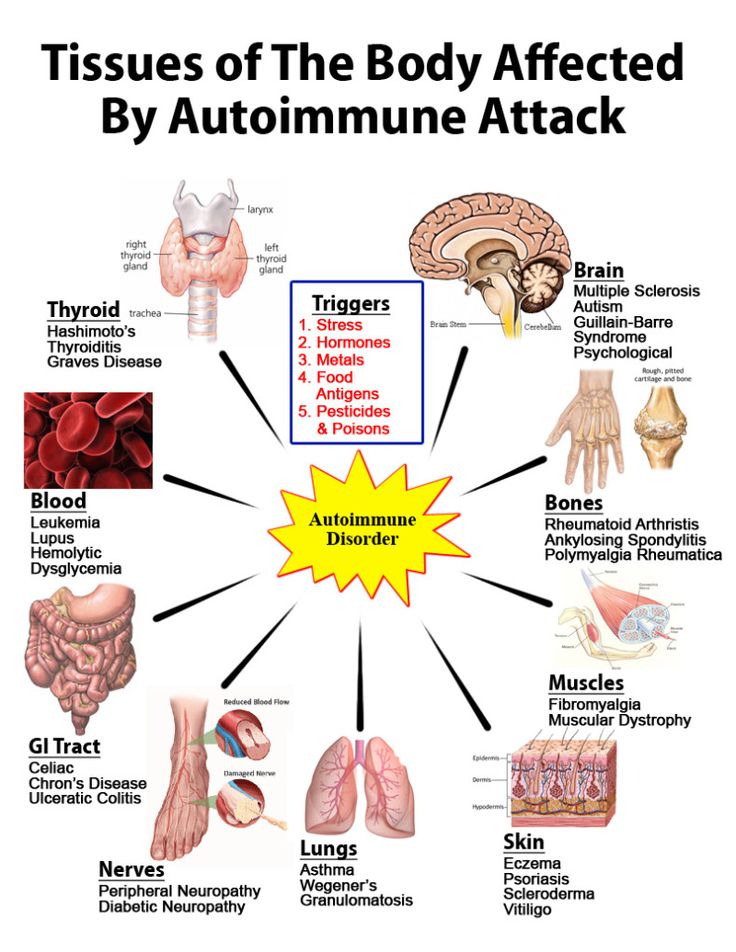 7
7
96
7 495 645-6601
Federal State Unitary Enterprise “Russia Today”
https: // XN--------------------------------- c1acbl2abdlkab1og.xn--p1ai/awards/
society, news
SIMFEROPOL, February 21 - RIA Novosti Crimea. Most often, allergies are caused by foods that are included in the diet of a large number of people. If the allergen is not identified and excluded, eczema and atopic dermatitis may occur, immunologist Vladimir Bolibok warns, RT reports. nine0003
February 7, 2021, 08:32
Russia may become the first country without cat allergies – scientist
requires individual study," he says. At the same time, it is quite easy to identify the cause of the reaction - you need to consult a doctor and donate blood for research. One of the advantages of such an analysis is the identification of a large number of allergens in a short time. This will completely eliminate dangerous foods from the diet. However, there are also certain difficulties. nine0003
However, there are also certain difficulties. nine0003
October 27, 2020, 21:17
Crimean dermatologist spoke about masks that cause rashes and allergies
Bolibok.
Another problematic aspect of the successful treatment of food allergies is the difficulty of diagnosis. In the case of a not pronounced illness - the absence of urticaria, for example - a person may not know about it and treat, for example, a violation of the digestive system. nine0003
Earlier, the RIA Novosti Crimea website reported that uncontrolled intake of vitamins can also cause allergies.
Eczema: what is it, symptoms, causes, types, treatment and diet
Eczema is a chronic inflammatory skin disease of an allergic nature. The causes of the onset and development of pathology have not yet been studied, but it is believed that allergic diseases and genetic prerequisites are provoking factors. Treatment of eczema is carried out successfully today.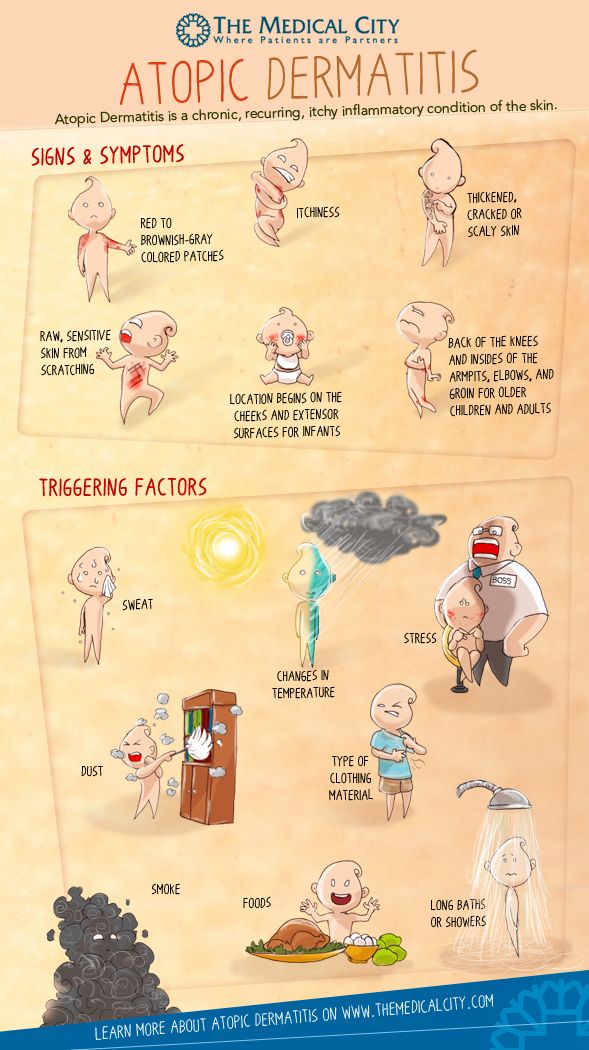 You just need to turn to experienced professionals. nine0003
You just need to turn to experienced professionals. nine0003
What is eczema?
This is a disease characterized by inflammatory processes and characterized by:
- A large number of developmental provoking factors
- Many variants of rash
- Tendency to relapse
- High treatment resistance
Typically, an eczema rash concentrates on areas such as:
- Neck
- Knees
- Elbows
- Ankles
Symptoms of pathology can periodically increase. Such attacks last from a couple of hours to several days.
Classification
In accordance with the characteristics of the course of the pathological condition, the following are distinguished:
- Acute eczema. Her symptoms usually persist for 1-2 months
- Subacute. Symptoms of this pathology are less pronounced. In this case, the pathology can accompany the patient up to 6 months
- Chronic.
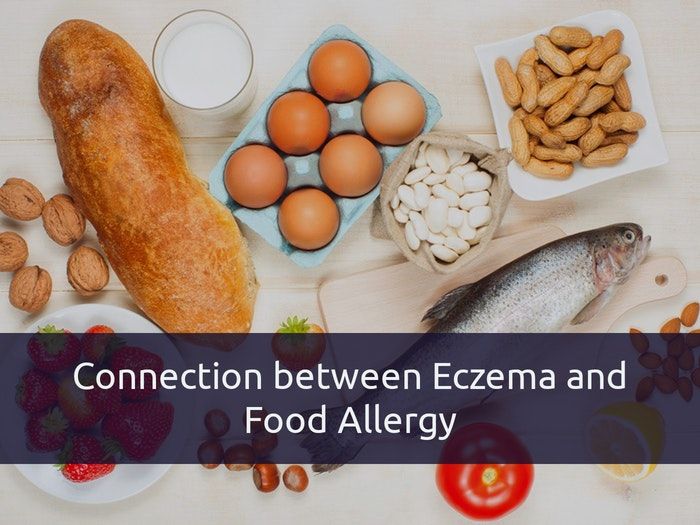 In this case, the disease can proceed for several years. Periods of relapses follow remissions
In this case, the disease can proceed for several years. Periods of relapses follow remissions
There are several types of pathology:
- True. Such eczema is characterized by a chronic course. Exacerbations occur frequently and are accompanied by the appearance of symmetrical foci of inflammation. At first, areas of the skin turn red and swell. After that, small bubbles form on them. Over time, they open with the release of exudate (a small amount of liquid)
- Microbial. This form of pathology is characterized by the formation of deep ulcers and fistulas. Pathology is accompanied by severe itching. In the microbial form, foci of inflammation spread mainly to the legs
- Seborrheic. This form is characterized by rashes on the face (on the forehead, near the eyebrows, behind the ears) and the scalp. Complete restoration of the skin is possible only with correct therapy
- Children's. This form is characterized by a large amount of exudate
- Professional.
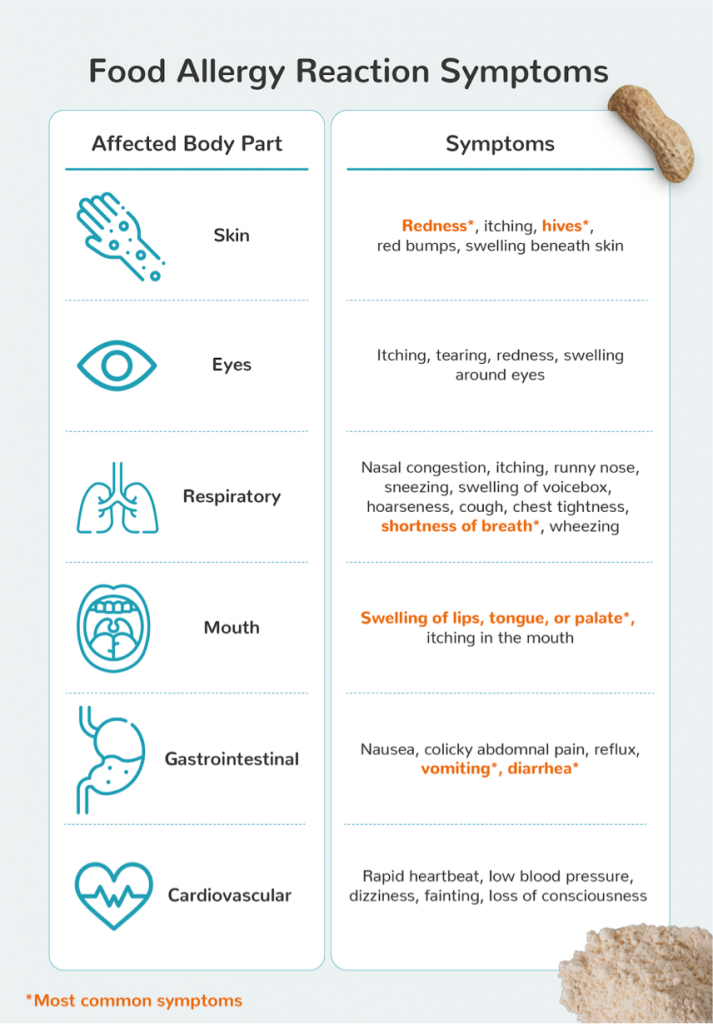 This form of pathology is characterized by vivid manifestations. The rash can appear on various areas of the skin (usually those that come into contact with irritants). Irritants in occupational eczema can be either chemical or physical or mechanical. Usually, pathology is provoked by constant exposure to cosmetics, active chemicals, various plants, resins, metals (mainly nickel and chromium)
This form of pathology is characterized by vivid manifestations. The rash can appear on various areas of the skin (usually those that come into contact with irritants). Irritants in occupational eczema can be either chemical or physical or mechanical. Usually, pathology is provoked by constant exposure to cosmetics, active chemicals, various plants, resins, metals (mainly nickel and chromium)
Reasons
Eczema, the treatment of which should only be carried out by professionals, is quite common.
Its causes include a number of internal and external factors.
Internal factors for the development of eczema:
- Nervous system disorders
- Pathologies of internal organs
- Genetic factors (heredity)
External factors provoking pathology: nine0003
- Increase or decrease in temperature
- Exposure to harsh chemicals
- Influence of extracts of various plants, etc.
Often, a combination of internal and external factors provokes pathology.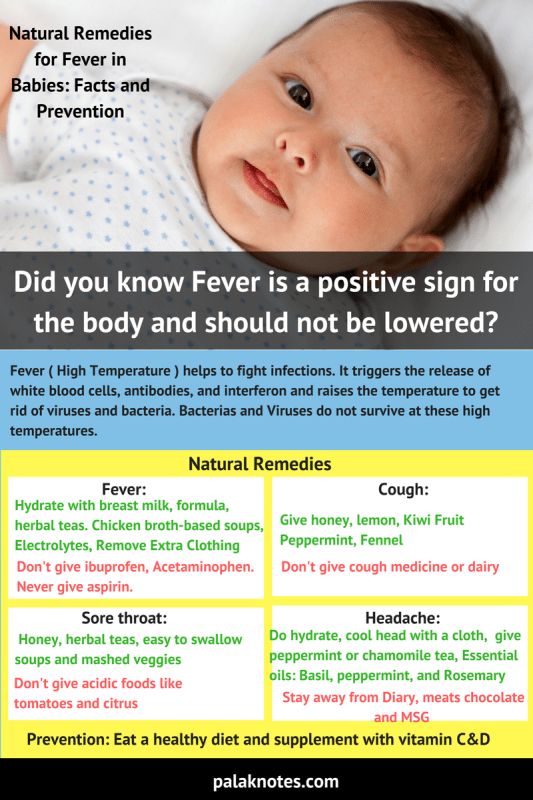
Eczema can be the body's response to:
- Contact with pollen
- Excessive sweating
- Immune system disorders
- Stress
- Taking medications
- Taking certain foods
Before starting the treatment of eczema, it is very important to identify the causes that provoked the onset of pathology. Only in this case, the therapy will be as effective as possible and will not drag on for a long time.
Symptoms
All types of eczema are characterized by the following symptoms:
- Appearance of individual inflamed areas on the skin
- Appearance of rash
- Itching
- Bubble Breaker
- Wounds and fissures that cause permanent discomfort
- Increase in body temperature during exacerbations
- General malaise and weakness
- Cracking of the skin, its pronounced dryness and loss of elasticity
Symptoms of the pathological condition largely depend on the stage of development of eczema.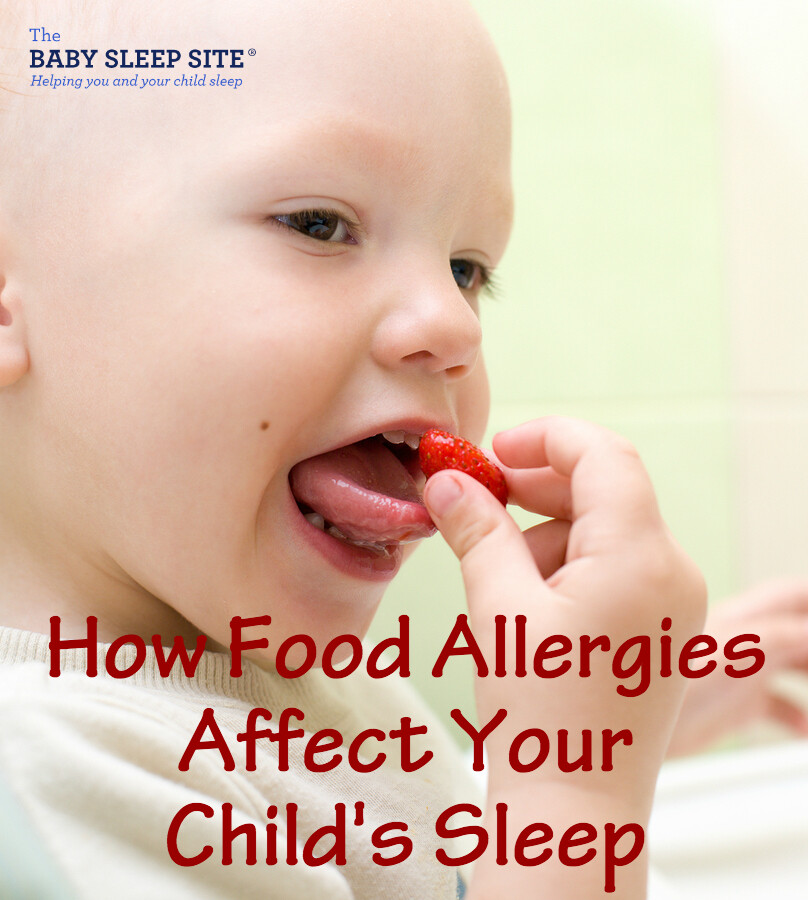 nine0003
nine0003
At the erythematous stage, the disease manifests itself in the form of inflamed areas. Gradually, the spots can merge into a separate affected area, which has an impressive area.
At the papular stage, the affected skin becomes unpleasant to the touch. It forms small nodules with clear boundaries and a bright red color.
At the vesicular stage, the nodules turn into vesicles.
At the stage of wetting, the bubbles gradually open, liquid is released from them. nine0003
In the cortical stage, the inflamed areas dry out. Yellowish crusts form on the skin.
At the stage of dry eczema, the skin begins to peel off. Formed crusts gradually disappear. Do not try to rip them off yourself! This can provoke the resumption of pathology.
Diagnostics
Treatment of eczema in adults is possible only after a thorough assessment of its symptoms and causes. That is why it is very important for a doctor to conduct a high-quality diagnosis.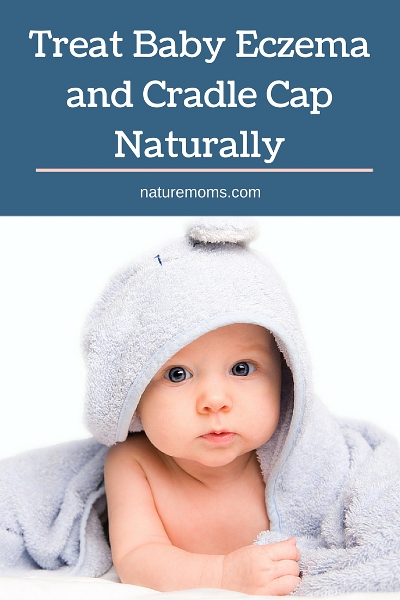 nine0003
nine0003
It begins with the collection of anamnesis.
The doctor explains:
- The first cases of manifestation of signs of a pathological process
- Presence of intolerance to certain foods and drugs
- Allergic reactions
At the first appointment, the dermatologist performs a dermatoscopy. This study is aimed at studying the condition of the skin, mucous membranes and scalp. nine0003
Then laboratory tests are carried out.
For the diagnosis of eczema are assigned:
- Urinalysis
- Blood tests
- Serum immunoglobulin test
During the examination, the specialist determines the general state of health of the patient, evaluates individual vital signs. If necessary, a consultation with a nutritionist and an immunologist-allergist is carried out. nine0003
In advanced situations, a comprehensive immunological and allergological examination with sampling is also prescribed. As part of such a diagnosis, doctors are able to identify irritating factors that can provoke symptoms of eczema and allow you to quickly begin to treat the pathology.
As part of such a diagnosis, doctors are able to identify irritating factors that can provoke symptoms of eczema and allow you to quickly begin to treat the pathology.
Treatment
The main task of the doctor after making a diagnosis such as eczema is to reduce or completely eliminate the factors that provoke the onset of symptoms. nine0003
Treatment of pathology is conditionally divided into several stages:
- Taking general medications
- Diet modification
- Use of topical agents in the form of ointments, emulsions, creams, etc.
- Physiotherapy
The following groups of drugs are used for therapy:
- Antihistamines. Such remedies are prescribed for acute eczema nine0155 Glucocorticosteroids. These hormonal drugs relieve inflammation and prevent the development of allergic reactions
- Diuretics. Such funds are recommended for severe edema
- Tranquilizers. These drugs allow you to eliminate itching, ensure a sound and healthy sleep of the patient, his good rest even with severe discomfort in the acute stage of eczema
- Enterosorbents.
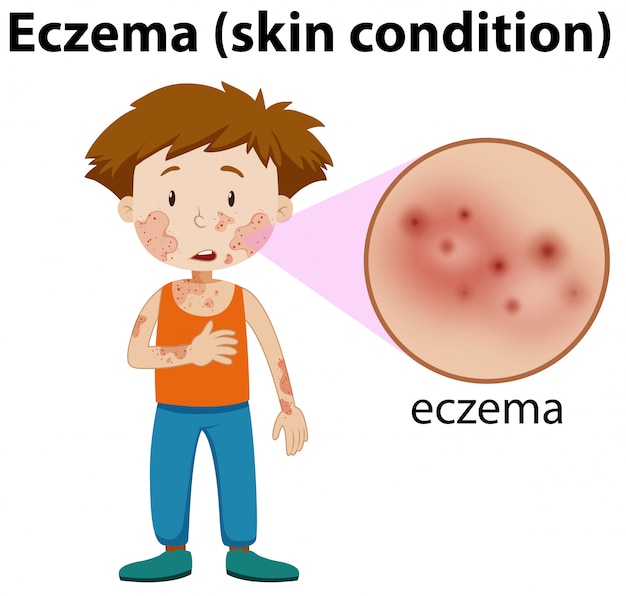 These funds allow you to quickly remove all the products of intoxication from the intestines
These funds allow you to quickly remove all the products of intoxication from the intestines - Vitamins of group B, aimed at normalizing the functioning of the nervous system
- Antibiotics. These funds are prescribed if, as a result of the diagnosis, it turned out that eczema is provoked by the action of aggressive microorganisms
Locally, applications with pastes and ointments are usually prescribed, which have:
- Antipruritic effect
- Anti-inflammatory
- Antiseptic properties
Compositions of preparations for external use are often selected individually. In some cases, "talkers" are prescribed, which are prepared in pharmacies according to a doctor's prescription.
Important! It is strictly forbidden to use folk remedies, various oils, plant extracts, etc. for the treatment of eczema. They are able not to stop the development of the pathological process, but to provoke it.
With regard to physical therapy, patients are usually prescribed: nine0003
- UV
- Magnetic therapy
- Electrophoresis
Treatment of weeping eczema is carried out with the obligatory use of drugs that allow you to dry the skin and ensure the elimination of external signs of pathology. Treatment of other forms of the disease also has individual specificity. The attending physician will tell you about all the subtleties.
Treatment of other forms of the disease also has individual specificity. The attending physician will tell you about all the subtleties.
There are also general recommendations that should be followed by all patients suffering from the disease. nine0003
- Avoid skin contact with aggravating substances (if such substances are identified through tests and samples)
- Dieting. Cocoa, citrus fruits and chocolate should be completely excluded from the diet
- Skin care with doctor recommended products only
- Elimination of nervous overload and stressful situations
Diet
The basis for the recovery of patients with eczema is often a properly selected diet. When selecting the products you need, the doctor takes into account both the general state of health and the stage and form of the pathology, as well as the presence of concomitant diseases. nine0003
There are also general recommendations regarding nutrition.
All patients during an exacerbation should:
- Avoid spicy, salty and smoked foods
- Refuse sweets
- Eliminate citrus fruits, eggs, alcoholic beverages, dairy products and processed foods from the diet
The diet should include:
- Green
- Lean cereals nine0155 Vegetables
During periods of remission, it is desirable to use zucchini and pumpkin, watermelons, gooseberries, lingonberries, currants and cranberries, nuts. Patients who adhere strictly to the diet usually improve quickly. After a month, the diet can be expanded.
With eczema, the following foods and drinks are strictly prohibited:
- Coffee and cocoa
- Sweets
- Fatty meat
- Tomatoes
- Garlic
- Buns and other pastries
- Melon
- Grenades
- Beetroot
- Strawberry
- Honey
It is advisable to use only those products that are hypoallergenic. A complete list will be given to you by your doctor.
A complete list will be given to you by your doctor.
Benefits of treatment at MEDSI
- Comprehensive diagnosis of eczema. The examination includes laboratory tests, dermatoscopy and video dermatoscopy. Diagnostics is carried out on modern equipment. We have our own laboratory, which allows us to provide patients with test results in the CITO mode (urgently)
- Individual selection of methods for the treatment of eczema in adults and children. Therapy is prescribed taking into account the stage of the pathological process and the characteristics of its course
- Use of modern preparations. Patients are prescribed anti-inflammatory, disinfectant and other drugs that are newly developed, but already have proven effectiveness
- Carrying out modern physiotherapy procedures. Our clinics offer UVA therapy, ozone therapy, magnetotherapy. The combination of modern techniques allows you to achieve pronounced results of treatment in the shortest possible time
- Treatment of eczema with laser devices.
